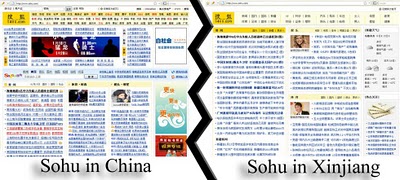[UPDATE: Rein has once again outdone himself. Check the comments and the links to the original blog post by Modern Lei Feng. Yikes.]
I’ve been wondering for a couple months now how Shaun Rein got one of the sweetest deals in China – a column in Forbes that lets him link to and plug his own marketing company in nearly every column as he tells readers how great business is in China and how rosy things look there. In one recent column, modestly titled, Yes, China Has Fully Arrived As A Superpower, he takes James Fallows to task for pointing out that while China is rising fast it is still far too poor and wracked with internal challenges to be considered a true superpower along the lines of the US, a not-so-outlandish assertion. These are the lines from the article that jumped out at me:
“China is certainly not altogether as wealthy as the US or Japan, as Fallows correctly observes. But it is emerging confident and relatively unscathed from the financial crisis.
Not altogether as wealthy as the US?? As if it’s almost as wealthy as the US? China’s great. I love China. But hundreds of millions of Chinese are still dirt-poor, and while China is improving and getting wealthier, to compare its society’s wealth with that of the US and Japan, even with all of their problems, is irresponsible. “Not altogether as wealthy as the US”?? But let’s get back to Google.
If Rein’s column on China emerging as a great superpower was awful, his new column on Google with the provocative title Google’s Act Of War Against China is way worse. Like all of Rein’s columns, it echoes the party line and is resoundingly “pro-China,” always playing up the great market potential of China, (where, coincidentally, Rein heads a marketing company). It’s fine to be pro-China. I consider myself to be pro-China. But we expect to read stuff like this on Chinese BBS’s, not in Forbes:
Has Google really thought through the implications of its actions, beyond just giving up the world’s fastest growing digital advertising market and the welfare of its employees and legal representatives in China? Or is this the impulsive move of an arrogant and immature leadership team used to getting its way?
Looking beyond the implications of what is, in effect, a new mode of statecraft, we should ask whether Google isn’t using censorship and cyber terrorism as an excuse to get out of China because of business failings there. If Google were making more money in China, would it necessarily have taken this stand?
Here’s what James Fallows, a real journalist who writes consistently great posts on China, has to say about the argument Rein is embracing (that Google was creating an excuse to leave China because it was trailing in market share).
Sky Canaves of the WSJ in Beijing has saved me a lot of time (and done readers a favor) by producing a catalogue of the biggest “misstatements and misunderstandings” people have promulgated about this situation.She starts with the most preposterous: that Google deliberately picked an extremely public fight with a notoriously thin-skinned government, merely to distract attention from its commercial struggles in a market where it enjoys “only” a 35% share. That Chinese officials and “netizens” would claim this is understandable. The Westerners who took it up reveal their preference for the counter-intuitive and “clever” rather than the believable.
Rein goes on to wag his finger at Google, as if he has a better grasp of their situation – as though Google is stumbling and bumbling and screwing up, with no idea how they’re damaging themselves. He almost makes it sound as if they need a good China marketing company.
Its mistakes may have long-term effects on its bottom line. Beyond giving up search for China’s 380 million netizens, the company may now find handset makers being pushed not to carry its Android operating system. That could mean a serious long-term loss of revenue in a country with 720 million mobile phone users.
Google’s China experience also illustrates that anyone operating in China needs to empower local employees to make decisions early and fast. You also need a head of your business in China who has the credibility and headquarters support to champion such decisions.
I assure you, Shaun, Google has taken the possible loss of potential revenue from its Android phone into account, but I’m sure they appreciate the free advice.
Earlier on in the article, Rein tells us, ominously,
If other foreign firms and activist investors in companies conducting business in China banded with Google, they could launch a serious threat to the stability of China, or of any country.
You see, this is Google “declaring war on China.” There is one bad guy here, the one declaring war, and other companies might follow suit leading to a potential crisis for China (which would be bad for marketing companies in China, no?). But has China no say in this matter? Why is there not a single word about what foreign companies need to go through to enter the China market? Not a word about the actual reasons Google spelled out for its decision? Instead, we are fed pablum like this:
They [China’s leaders] have also seen how 30 years of economic growth brought happiness to the Chinese population. Let’s not forget that the Pew Center has found that 86% of Chinese are happy with the direction the government is taking the country.
Normally I wouldn’t bother writing a post like this about an article that’s so blatantly one-sided and suck-uppish. But this is Forbes, and they have such a great Beijing bureau chief and the quality of most of their articles is so outstanding – I am at a loss as to how self-advertising puff pieces like this are allowed to run. I read it with disbelief.
Updated with cosmetic edits, January 17 1PM Mountain time.

Comments